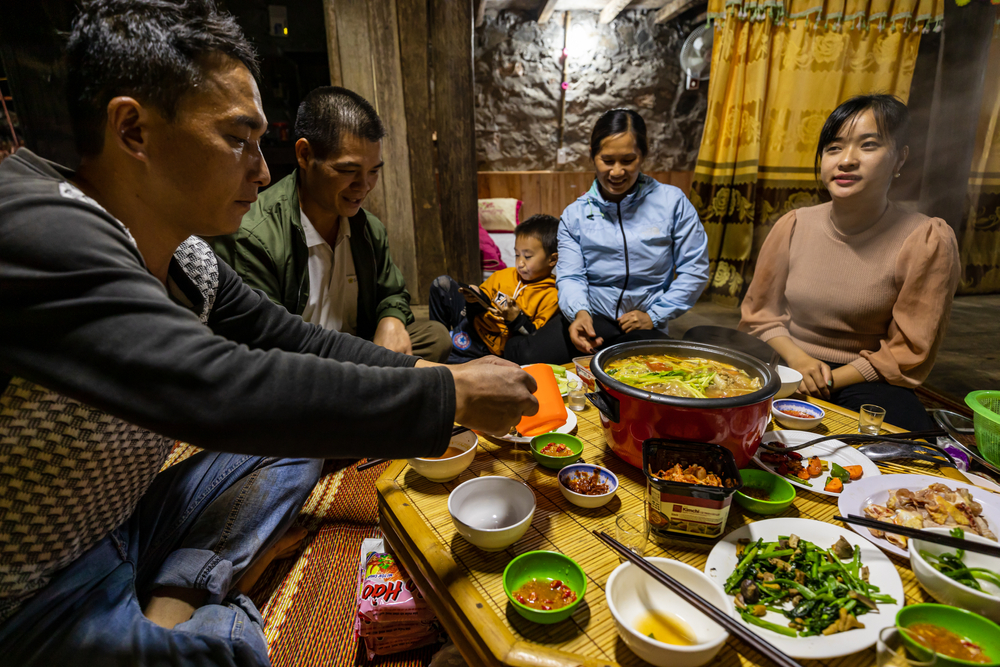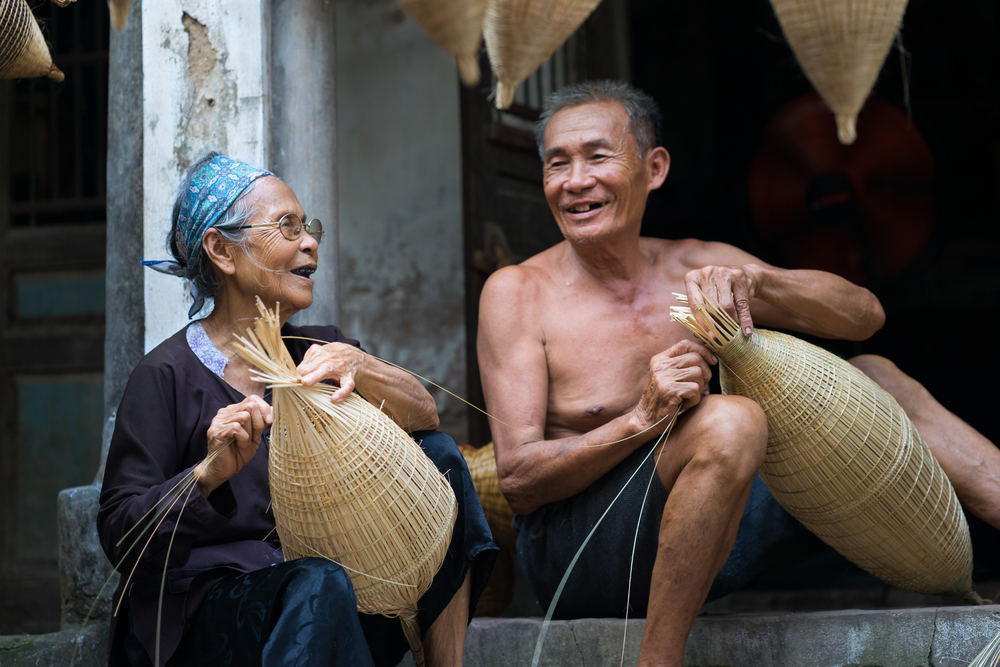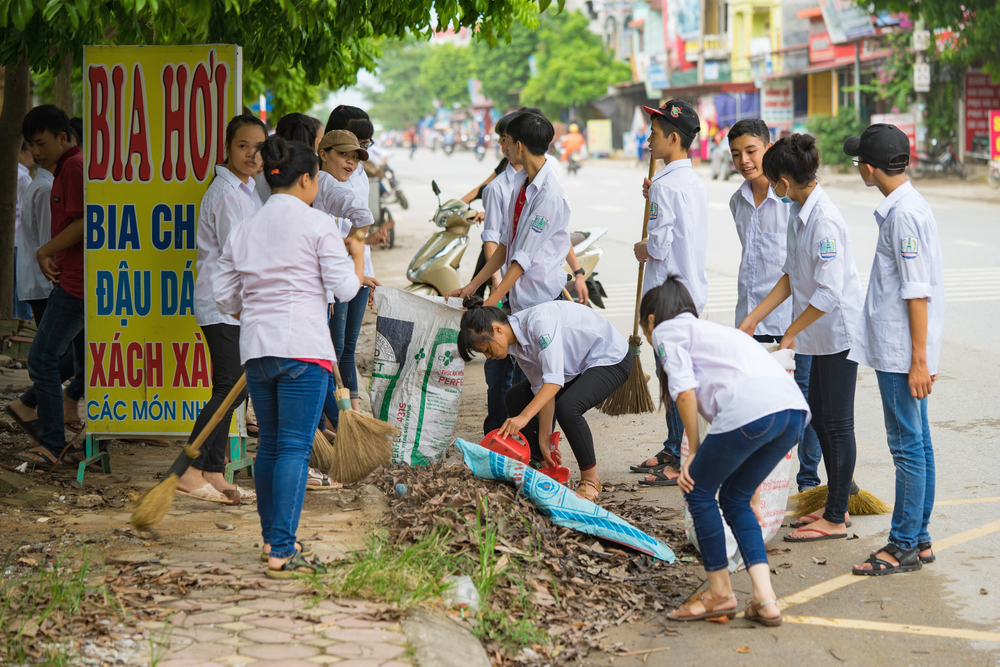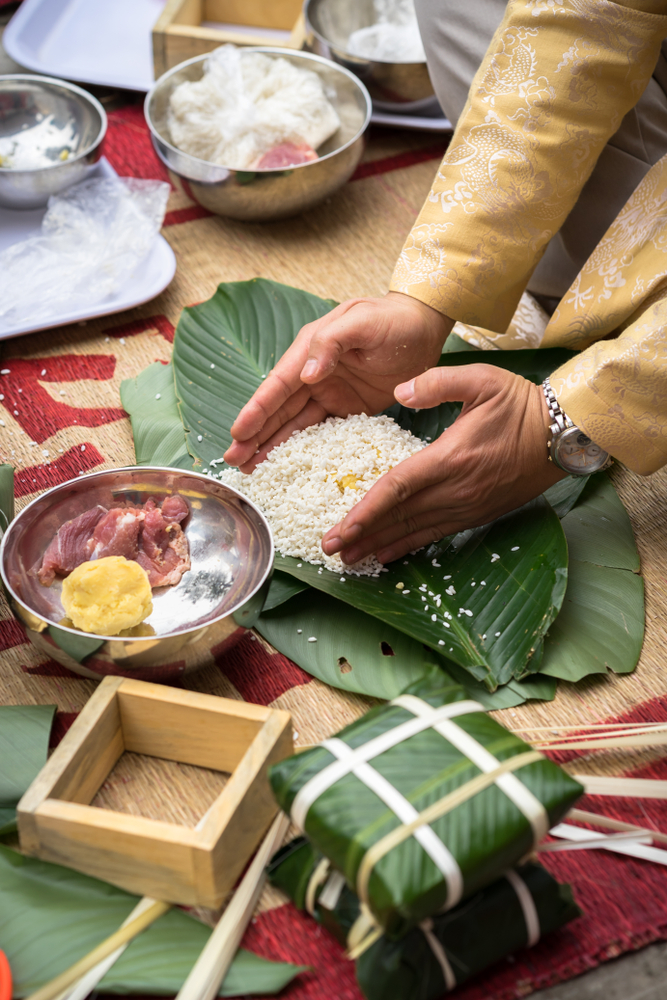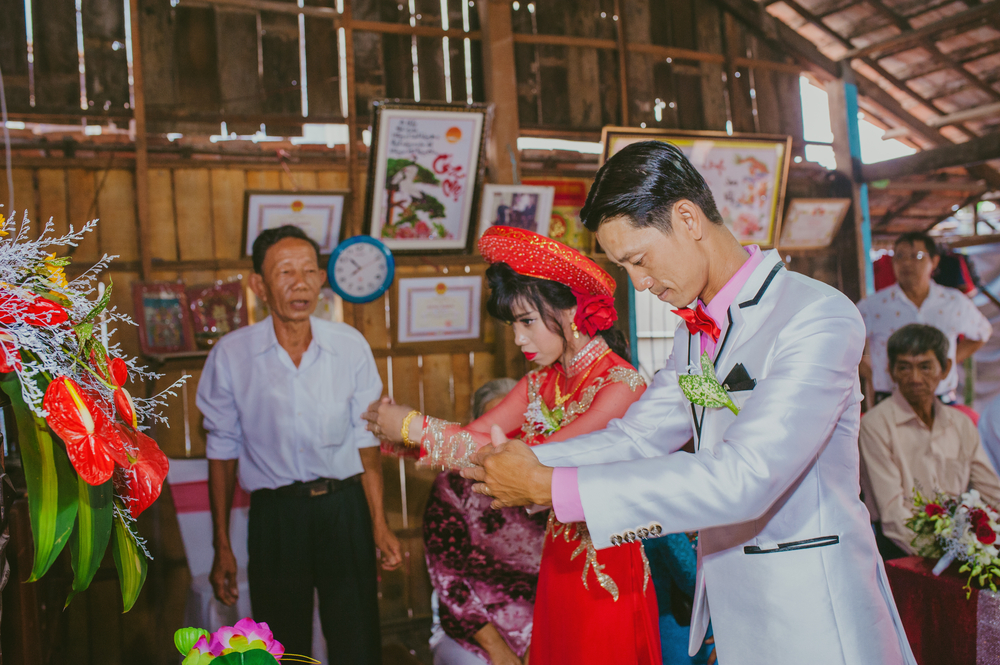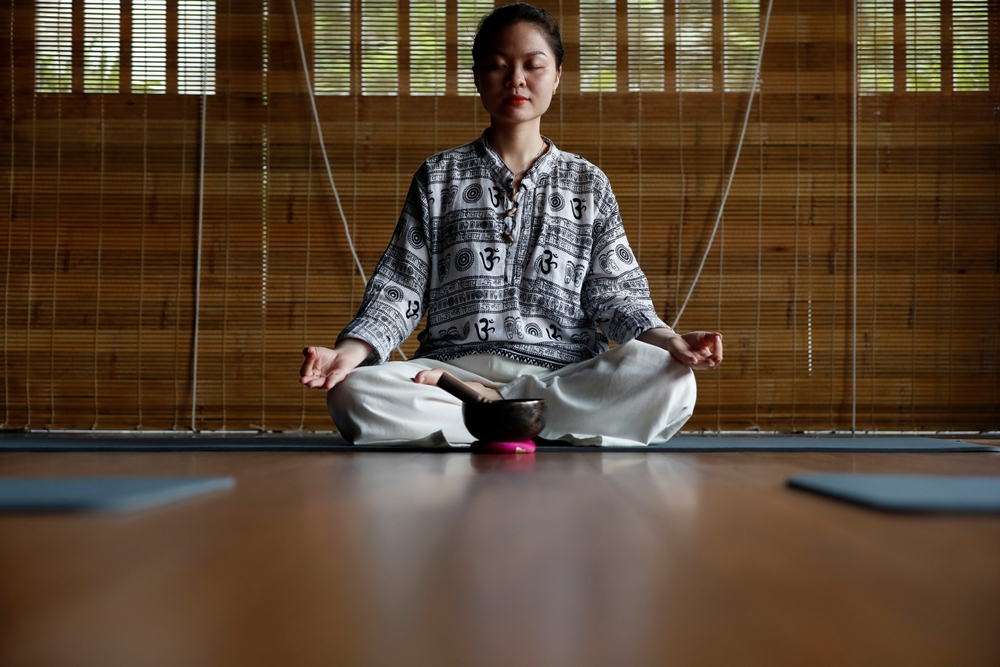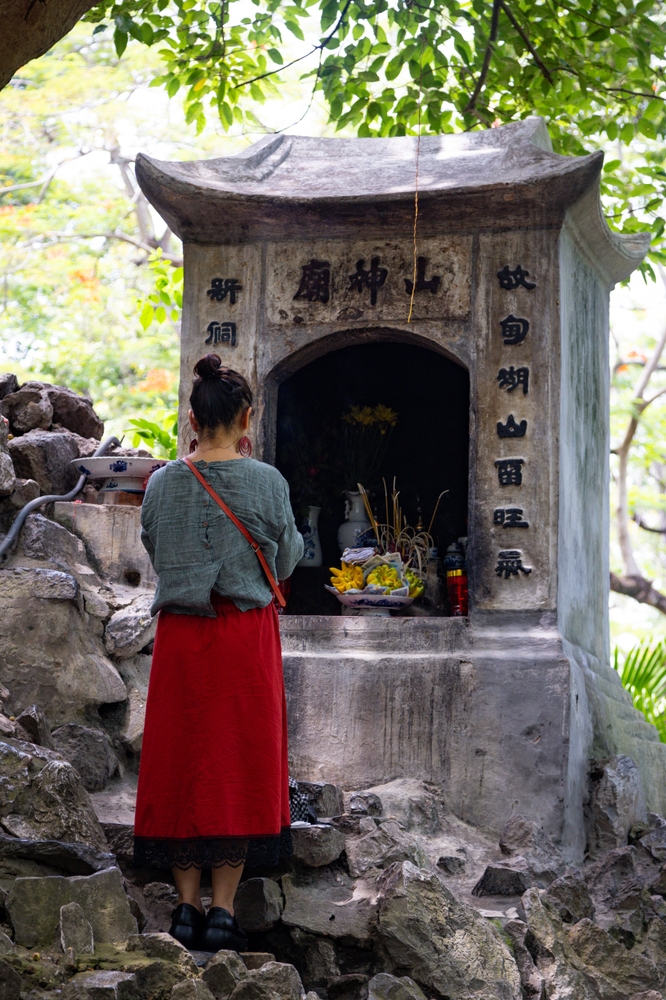Culture Stories
Historically societies have used shared stories such as myths, legends, fables, and oral histories to communicate their values, beliefs, and traditions. These tales not only entertain but also serve as communal touchstones that reinforce shared values and bind members of the culture together. The following stories, while not traditional, have been created to illustrate some of the cultural values of Vietnamese.
A Day in the Life of a Vietnamese Woman
Story |
Cultural Values Illustrated |
|
In the bustling city of Hanoi, Vietnam, a woman named Linh began her day with a family breakfast. She enjoyed laughter and conversation during the morning meal with her family.
|
Close Clan: In Vietnam, the family is at the heart of everything. Meals are a communal affair, and the day’s first moments are often shared amongst family members, reinforcing the bonds that hold the social fabric together. |
|
After breakfast, Linh took a short scooter ride to visit her elderly grandparents.
|
Older and Wiser: Vietnamese tradition teaches deep respect for one’s seniors. The wisdom of age is honored, and the care of the older generation is a reflection of the society’s respect for its roots and traditions. |
|
After her visit, Linh joined her friends and neighbors to participate in a group cleanup that brought the community together.
|
Doing Life Together: Collective action, whether it’s a neighborhood cleanup or local festival, is a testament to the Vietnamese value placed on community cohesion and shared responsibility. |
|
Following the community event, Linh attended a lecture at her university. She was anxious to absorb new knowledge.
|
Knowledge Is Key: The pursuit of education is a respected endeavor in Vietnam, as it promises personal growth and is regarded as a path to societal progress. |
|
Later, after her studies, Linh headed to her part-time job, a common practice among students in Vietnam.
|
Strong Determination: The value of hard work and diligence is instilled from a young age in Vietnam. Perseverance is as much a cultural norm as it is a pathway to personal success. |
|
In the evening, Linh spent time engaged in a traditional art form, practicing the delicate movements she had learned since childhood.
|
Purposeful Arts: Artistic pursuits in Vietnam are a way to connect with one’s heritage, express individuality, and contribute to the rich tapestry of national culture. |
|
As the day wound down, Linh and her mother began preparing dinner, filling the home with the aromas of spices and herbs.
|
Cultural Cuisine: Vietnamese cuisine is a proud reflection of the country's diversity and history. The preparation and sharing of food are integral to cultural identity and familial connection. |
|
Dinner was a time for family again. Linh and her parents discussed her aspirations to contribute to the family’s finances.
|
Intergenerational Respect: In Vietnam, filial piety governs the relationship between children and parents, cementing the responsibility and reverence toward family that defines much of the societal interactions. |
|
After dinner, Linh strolled through a park, embracing the tranquility that natural spaces offer amidst the city's hustle.
|
The Great Outdoors: Vietnamese culture promotes living in harmony with the natural environment, reflecting the belief that humanity is a part of a larger ecological system. |
|
The day's end found Linh preparing her home for a guest by fluffing pillows and setting out tea for the next morning. |
Warm and Welcoming: Hospitality is a cornerstone of social conduct in Vietnam, with visitors treated with the utmost care, reflecting the generosity and openness of the Vietnamese people. |
Rituals and Traditions of Vietnam
Story |
Cultural Values Illustrated |
|
In the tranquil village of Mai Châu, nestled in the lush valleys of Northern Vietnam, an elder known as Mr. Thanh began his day preparing for Tết, the Vietnamese Lunar New Year. He decorated his home with peach blossoms and prepared bánh chưng (rice cakes).
|
Significant Events: Tết is a vital celebration signifying renewal and familial unity. It involves elaborate preparations and rituals, reflecting the cultural importance of this festival in bringing families together and honoring ancestral roots. |
|
After the Tết preparations, Mr. Thanh performed a solemn and respectful ritual at his family’s ancestral altar. He carefully placed offerings and burned incense.
|
Honoring the Past: Ancestor worship is a central element of Vietnamese culture, embodying deep respect for family heritage. Rituals performed at the ancestral altar are expressions of reverence for lineage and the continuity of family across generations. |
|
Later in the day, Mr. Thanh attended a local wedding. He observed the ceremony's traditional attire, exchange of gifts, and customary rites with a keen and appreciative eye.
|
Meaningful Matrimony: Vietnamese weddings are steeped in tradition, with numerous customs symbolizing the union of the couple and the joining of two families. These practices are integral to preserving cultural heritage and the sanctity of marital bonds. |
|
In the evening, Mr. Thanh crafted lanterns for the upcoming Mid-Autumn Festival, his hands deftly shaping the delicate materials. Especially significant for children, the festival is celebrated with lantern parades, lion dances, and mooncakes.
|
Keeping It Going: The Mid-Autumn Festival is a celebration of family bonding and lunar appreciation. The making of lanterns and other festive activities during this time are traditional practices that help keep Vietnamese heritage alive and relevant. |
|
Before retiring for the night, Mr. Thanh planned an upcoming giỗ, which is a commemorative ceremony marking a death anniversary. The event would involve offering food and prayers to the deceased and gathering with family to remember their loved one. |
Rest In Peace: A tradition honoring a death anniversary, giỗ reflects the respect for the deceased in Vietnamese culture. These ceremonies are important for remembering and honoring family members who have passed away, sustaining the connection across life and death. |
A Spiritual Day in Vietnam
Story |
Cultural Values Illustrated |
|
In the ancient town of Hội An, the day of a pious woman named Trang began with a visit to the local Buddhist temple. She spent time in quiet meditation, her thoughts focused and serene.
|
Om: In Vietnam, Buddhism plays a significant role, with meditation being a core practice. This reflects the value of inner peace and self-reflection, which are considered essential for spiritual growth. |
|
After her meditation, Trang headed to a nearby Catholic church, where she volunteered to help organize a community meal.
|
Live and Let Live: Vietnam's religious landscape is marked by interfaith harmony. The coexistence and mutual respect among different religions reflect a broader cultural tolerance and acceptance. |
|
Later in the day, Trang visited a small shrine dedicated to the ancestor spirits. She lit incense and offered prayers.
|
Important Link: Ancestor worship is a deeply rooted practice in Vietnam. Paying respects to ancestors is not just a ritual but a way of acknowledging the family lineage and maintaining a connection with the past. |
|
In the afternoon, Trang attended a lecture at a Confucian temple, keen on deepening her understanding of the teachings.
|
Social Philosophy: Confucianism, with its focus on ethics, education, and moral development, has significantly influenced Vietnamese culture and spiritual life. It emphasizes the importance of learning and personal betterment. |
|
Trang's day concluded with her family at home. They performed their evening ritual of praying together before dinner. |
Passing It On: The practice of family rituals, especially in a religious context, is a hallmark of Vietnamese culture. It underscores the importance of family in spiritual life and the transmission of religious and moral values across generations. |
Copyright © 1993–2025 World Trade Press. All rights reserved.

 Vietnam
Vietnam 